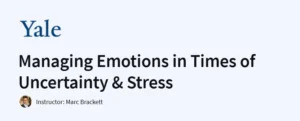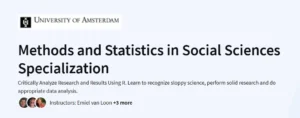What you will learn in Global Diplomacy – Diplomacy in the Modern World Course
- Foundations of Diplomacy: Understand the nature and evolution of diplomacy, including its definition and key characteristics.
- Success and Failure in Diplomacy: Analyze case studies to identify factors contributing to successful and failed diplomatic efforts.
- Qualities of a ‘Good’ Diplomat: Explore the essential traits and skills required for effective diplomacy.
- Diplomacy in Action: Examine real-world examples to see how diplomacy operates in various contexts.
- Reflections on Diplomacy: Reflect on the lessons learned throughout the course and their implications for future diplomatic endeavors.
Program Overview
Introduction to Diplomacy
⏳ 13 hours (3 weeks at 4 hours per week)
Overview of the nature of diplomacy, its historical development, and the key features of diplomatic relations.
Theories and Practices of Diplomacy
⏳ 13 hours (3 weeks at 4 hours per week)
Understanding diplomatic methods and strategies used by states and non-state actors.
Case Studies of Diplomatic Success and Failure
⏳ 13 hours (3 weeks at 4 hours per week)
Analysis of historical and contemporary case studies to learn the causes and consequences of successful and failed diplomacy.
The Role of Diplomats and International Organizations
⏳ 13 hours (3 weeks at 4 hours per week)
Explore the roles played by diplomats, international organizations, and global institutions in promoting peaceful relations and solving conflicts.
Final Project
⏳ 13 hours (3 weeks at 4 hours per week)
Apply your knowledge of diplomacy by analyzing a current diplomatic issue and proposing possible solutions.
Get certificate
Job Outlook
- Proficiency in Global Diplomacy is valuable for roles such as:
Diplomat
Policy Analyst
International Relations Specialist
Global Affairs Consultant
- Skills acquired in this course are applicable across various sectors, including government, international organizations, and non-governmental organizations.
- Completing this course can enhance your qualifications for positions that require understanding of diplomatic practices and international relations.
Specification: Global Diplomacy – Diplomacy in the Modern World
|
FAQs
- The course is suitable for beginners with no prior knowledge of diplomacy or international relations.
- Basic understanding of global events and political systems can help but is not mandatory.
- Concepts are explained with practical examples from modern diplomacy.
- Step-by-step guidance makes complex geopolitical issues easier to understand.
- Explains key diplomatic strategies, negotiation techniques, and international relations frameworks.
- Uses historical and contemporary case studies to illustrate principles.
- Helps learners understand the role of diplomacy in conflict resolution and global cooperation.
- Encourages critical thinking about international events and decisions.
- Introduces diplomacy and international relations terminology in plain language.
- Emphasizes understanding concepts over memorizing technical terms.
- Provides examples to contextualize specialized vocabulary.
- Gradually builds learners’ confidence in discussing global diplomacy topics.
- Provides foundational understanding for careers in diplomacy, foreign service, policy analysis, and international organizations.
- Strengthens skills in negotiation, strategic thinking, and cross-cultural communication.
- Serves as a stepping stone for advanced studies in international relations or global policy.
- Practical insights and case studies can enhance professional credibility in related fields.
- Discusses issues such as climate change, cybersecurity, pandemics, and global trade.
- Explains how these challenges affect negotiation strategies and international cooperation.
- Encourages learners to analyze and respond to emerging diplomatic trends.
- Provides a framework for understanding the evolving role of diplomacy in the 21st century.





